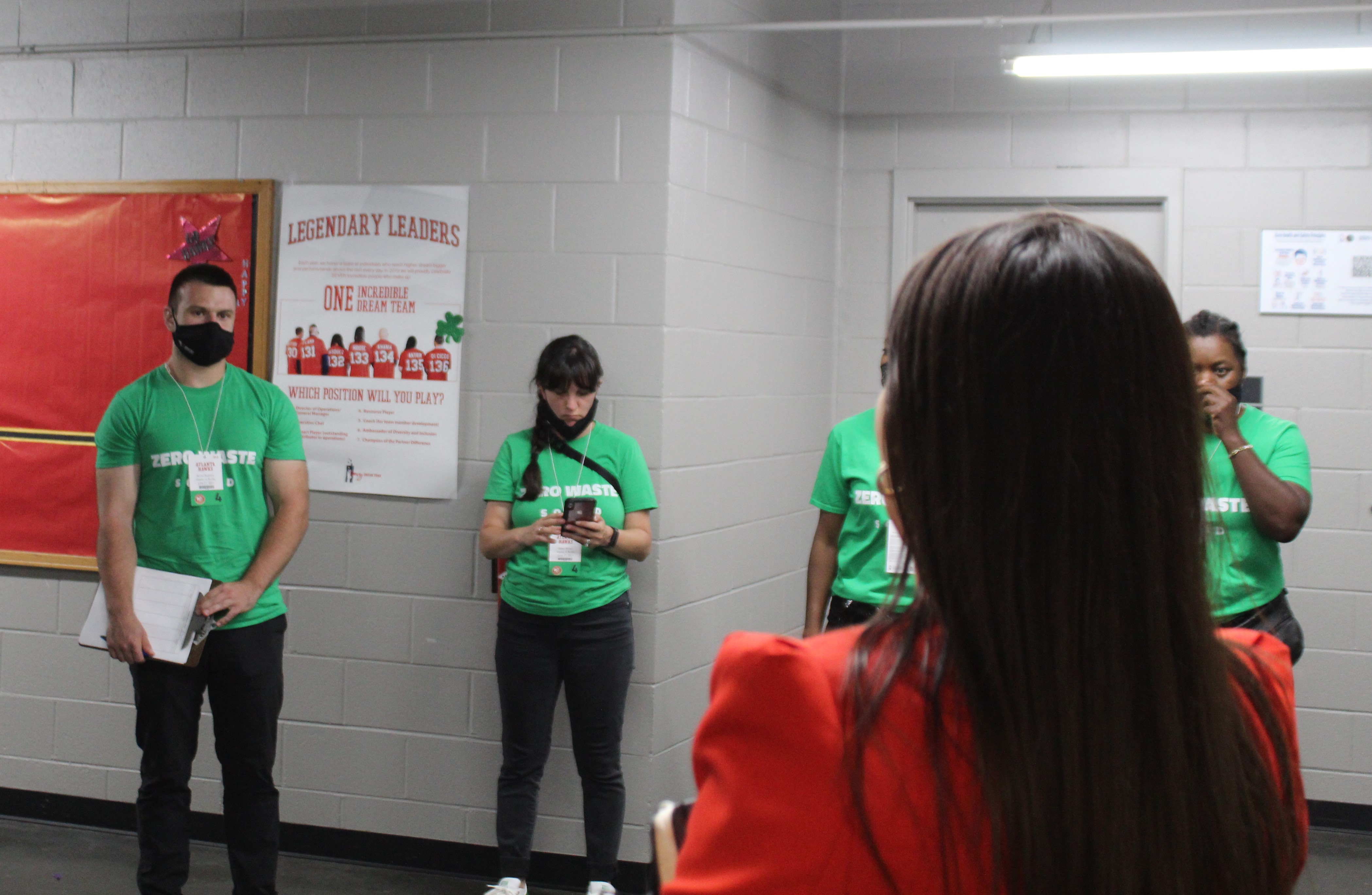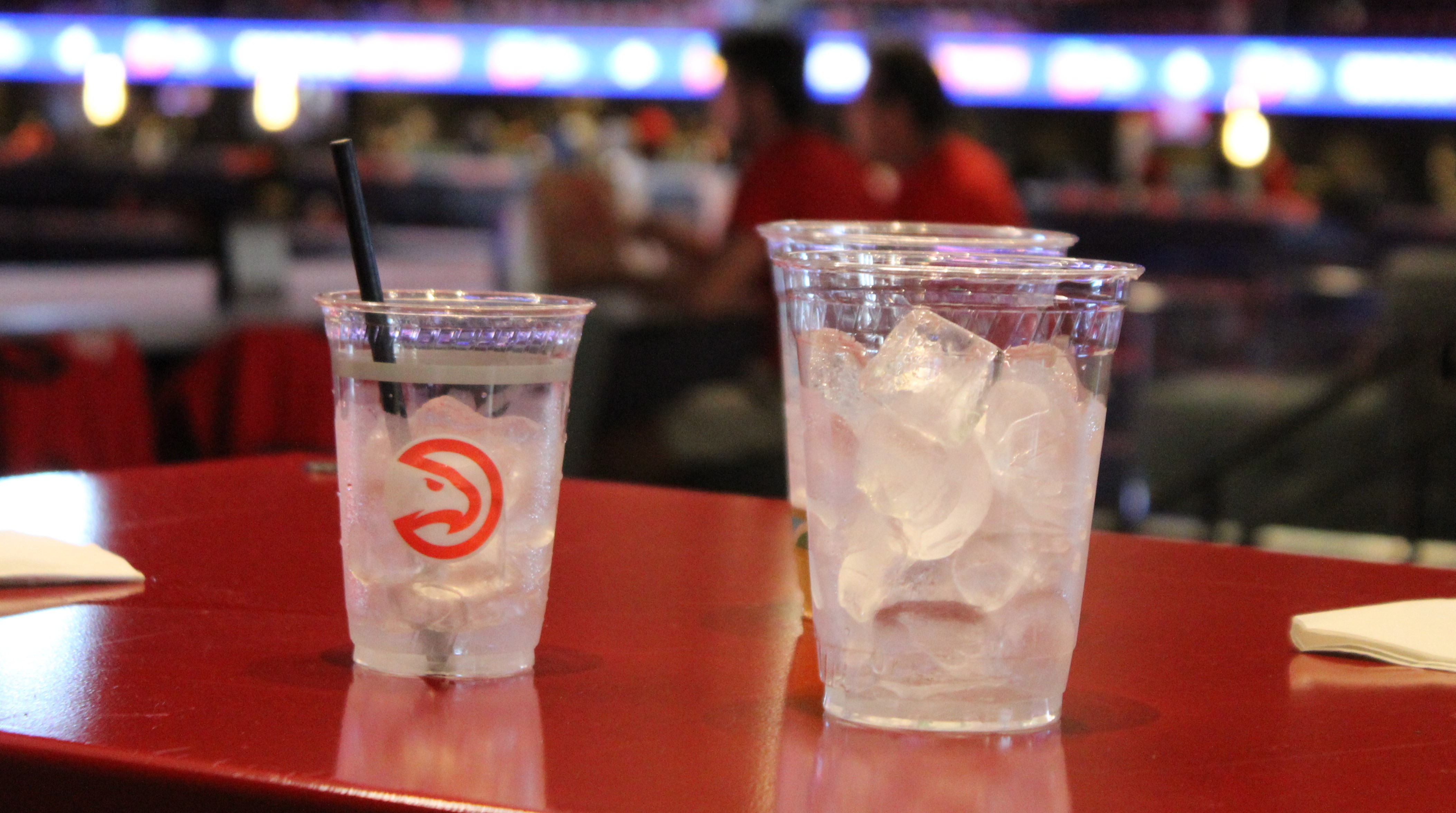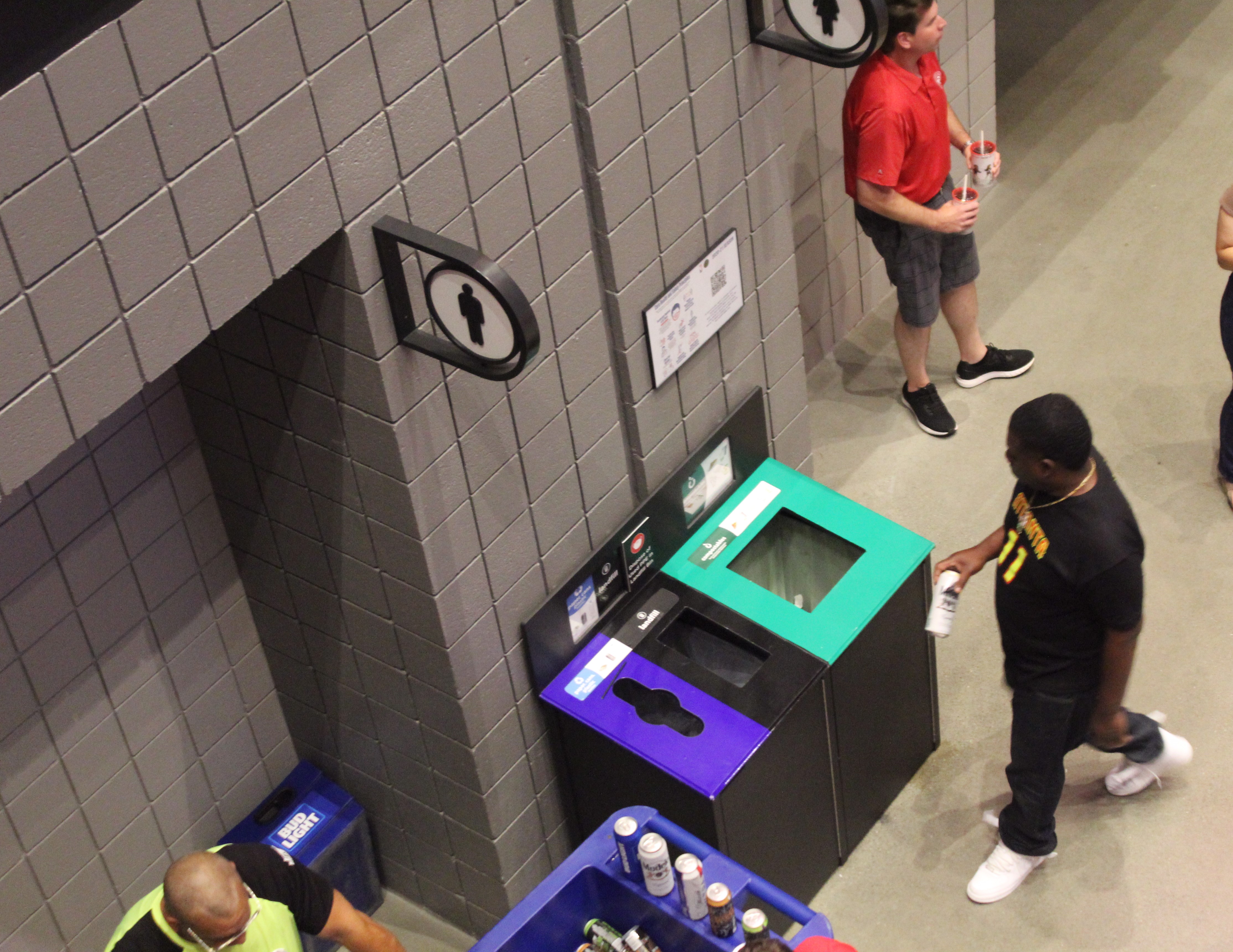Hawks At Forefront Of Push To Make Professional Sports More Environmentally Friendly
About an hour before game time, a different type of team huddle is happening in the basement of State Farm Arena.
“Those of you who are new, we’re gonna do a quick role play and kind of go over what we are doing,” says Sofi Armenakian, who oversees sustainability and operations for the Atlanta Hawks. “Those of you who have been here, maybe you can share some of your best practices on how it is easy for you to break the ice.”
Armenakian is surrounded by a dozen volunteers, all wearing green T-shirts that say Zero Waste Squad.
Meanwhile upstairs, fans start filing through the gates.
“Ice cold beer and water, candy. No line, no wait,” cries a vendor on the concourse.
Arenas and stadiums are filling up with fans again. And some teams – including the Hawks – are taking a personal approach to make sure fans aren’t filling up landfills when they enjoy a cold beer or a snack.
At the concession stand at State Farm Arena, drinks are poured into biodegradable plastic cups. Food trays, plates, forks and spoons – all go to the compost heap as well. Aluminum beer cans and water bottles, meanwhile, can be recycled.

Armenakian says the Zero Waste Squad was created to make sure everything goes into the right spot.
“Our job is to advise people what goes where before they even get ready to throw it away,” she said.
She urges the volunteers, some of whom teach at local public schools, to be as helpful as they can with the intent to inform people, rather than correct them.
“You can tell somebody walks up and they see the thing that says ‘plastic bottles and cans’ and they’re holding a compostable cup that looks like plastic,” said Armenakian. “They’re like … uhhhh. And they mean well, but they’re still doing the wrong thing – that’s what we’re here for.”
On a night like this, fans at the sold-out arena will produce nearly 14 tons of waste. And Armenakian says the Hawks’ goal is to have at least 90% of that waste go somewhere other than a landfill.
It’s a goal they’ve met more than once and hope to keep doing. The team has been working with a third-party group, Green Business Certification Inc. The group certified one of the Hawks’ first-round playoff games as meeting its Total Resource Use and Efficiency standard, the first sporting event in the world to do so.
“It’s great to work for an organization like the Hawks who are supportive and are willing to invest,” said Armenakian. “You pay triple the price to by compostable things and it’s important for someone to lead the way and make it a priority.”
‘Now, They Know’
It’s this type of number crunching that’s important, says Allen Hershkowitz, an environmental scientist and consultant.
He works with pro sports leagues including the NBA and Major League Baseball and says he’s seen a big change in the last 15 years.
“If I asked you how many home runs did Babe Ruth hit on a Tuesday against a lefty, I would have that information in 10 minutes from MLB research,” said Hershkowitz. “If I asked you how much waste or greenhouse gases or water is consumed by the league, they didn’t know. Now, they know.”

He says sports can play an important role in spreading the word about sustainability to a wide swath of the population that might not hear about it otherwise. He also says pro sports teams are becoming aware of the environmental impact of their large events.
“The most ubiquitous form of waste on the world is plastics. And the industry, sports, do not want to contribute to that,” said Hershkowitz.
Beyond just recycling plastic, sports teams and venues are also increasingly in the market for biodegradable concession items.
The Hawks credit their concession company, Levy Restaurants, with helping to make their supply chain more green.
‘Environmental And Sustainable’
The movement has also shifted the thinking of suppliers such as WinCup, a Georgia company based in Stone Mountain.
The company, which has been around since the mid-1960s, has eight manufacturing plants and employs a thousand workers. It was recently acquired by a California investor, Atar Capital. It recently inked deals with women’s pro golf and the concessionaire Delaware North to provide plant-based, biodegradable straws and drink stirrers.
“You can’t tell really any, hardly any difference in this product and just the traditional plastic straw,” said WinCup president Michael Winters. “The biggest difference is, it goes away in a few months.”
WinCup has branded the new straws and stirrers with the word “phade,” a play on the biodegradable material used to produce them, PHA. Winters says WinCup’s days of developing products that end up in a landfill are in the rearview mirror.
“We’re looking out the front windshield of the car in terms of where are consumers going to be going to in the years and the months to come,” said Winters. “Where can we take this company to bring environmental and sustainable solutions?”

‘You Did A Good Thing, Man’
Back on the concourse at State Farm Arena, a fan drops an aluminum beer bottle in the recycling bin, and he’s called out by a volunteer wearing a green shirt and given a pair of Hawks socks. A photo is snapped for social media.
“We just wanted to say thank you,” the volunteer said. “We’re trying to promote recycling within the arena and that you did a good thing, man.”








